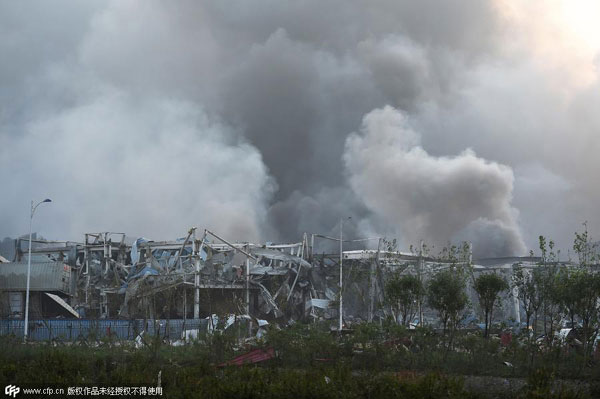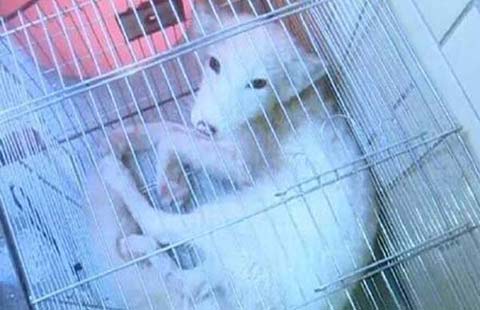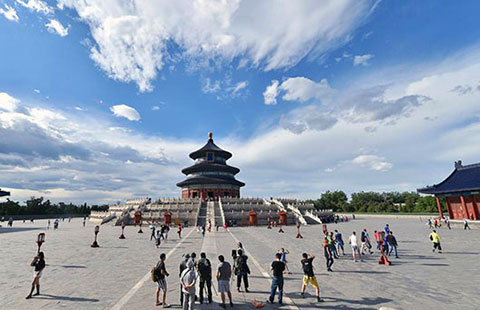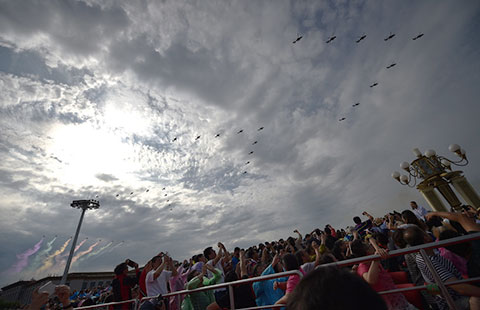Death toll at 112 from Tianjin blasts, sodium cyanide located
(chinadaily.com.cn/Xinhua) Updated: 2015-08-16 07:01
 |
|
Smoke billows from the site of an explosion in Tianjin, August 13, 2015. [Photo/CFP] |
Story highlights:
--The death toll rose to 112 by 9: 00 am on Sunday, with 24 bodies identified; 95 still missing, including 85 firefighters;
--Containers that store sodium cyanide have been located, and it is estimated to be several hundred tons;
--On Saturday afternoon, about 60 hours after the initial explosions, a man in his 50s was rescued near the blast site;
TIANJIN- Ten more bodies were found on Saturday night, pushing the death toll from the massive warehouse explosions in North China's Tianjin city to 112 by 9 am on Sunday. Of the bodies, 24 have been identified and 88 others will need DNA testing.
Another 95 people remain missing, including 85 firefighters.
Containers storing an estimated several hundred tons of sodium cyanide have been located by authorities at two places in the Tianjin blast zone, Shi Luze, chief of staff of Beijing Military Region, said at a press conference today.
Some of the exposed sodium cyanide from exploded containers is being controlled with hydrogen peroxide and other solutions, according to Shi. The intact containers soon will be collected and transported to safe places.
The latest rescued was a man in his fifties.Specialized anti-chemical soldiers rescued him only 50 meters away from a burst point Saturday afternoon, two and a half days after two huge explosions at a warehouse for hazardous chemicals at about 11:30 p.m. Wednesday following a fire.
The man was conscious and could talk when rescued. He was immediately rushed to the hospital.
The man suffered from respiratory tract burn but was in a stable condition after emergency treatment, said Li Jingmei, a doctor from the No.254 hospital in Tianjin.
Seventy specialized anti-chemical soldiers in heavy uniforms entered the core area of the blasts site on Saturday morning to search for possible lives. Another 90 joined them to work in turns.
Meanwhile, another 1,100 troops were combing nearby residential quarters home by home to search for potential survivors.
Wen Wurui, head of the Tianjin municipal bureau of environmental protection, said environmental specialists are taking measures to prevent air and water pollution caused by chemicals leaked from the blasts.
- Delegation salutes Tibet anniversary
- Officials are told to act as anti-graft watchdogs
- Great Wall safeguarded in united action
- Vice minister pledges more efforts to improve air quality
- Beijing’s efforts to control air pollution start to pay off
- China's military committed to reform
- Netizens rip singer over baby photos
- Central govt's growing support for Tibet
- Monument to be built on Tianjin blast site
- China and Russia seal raft of energy deals







